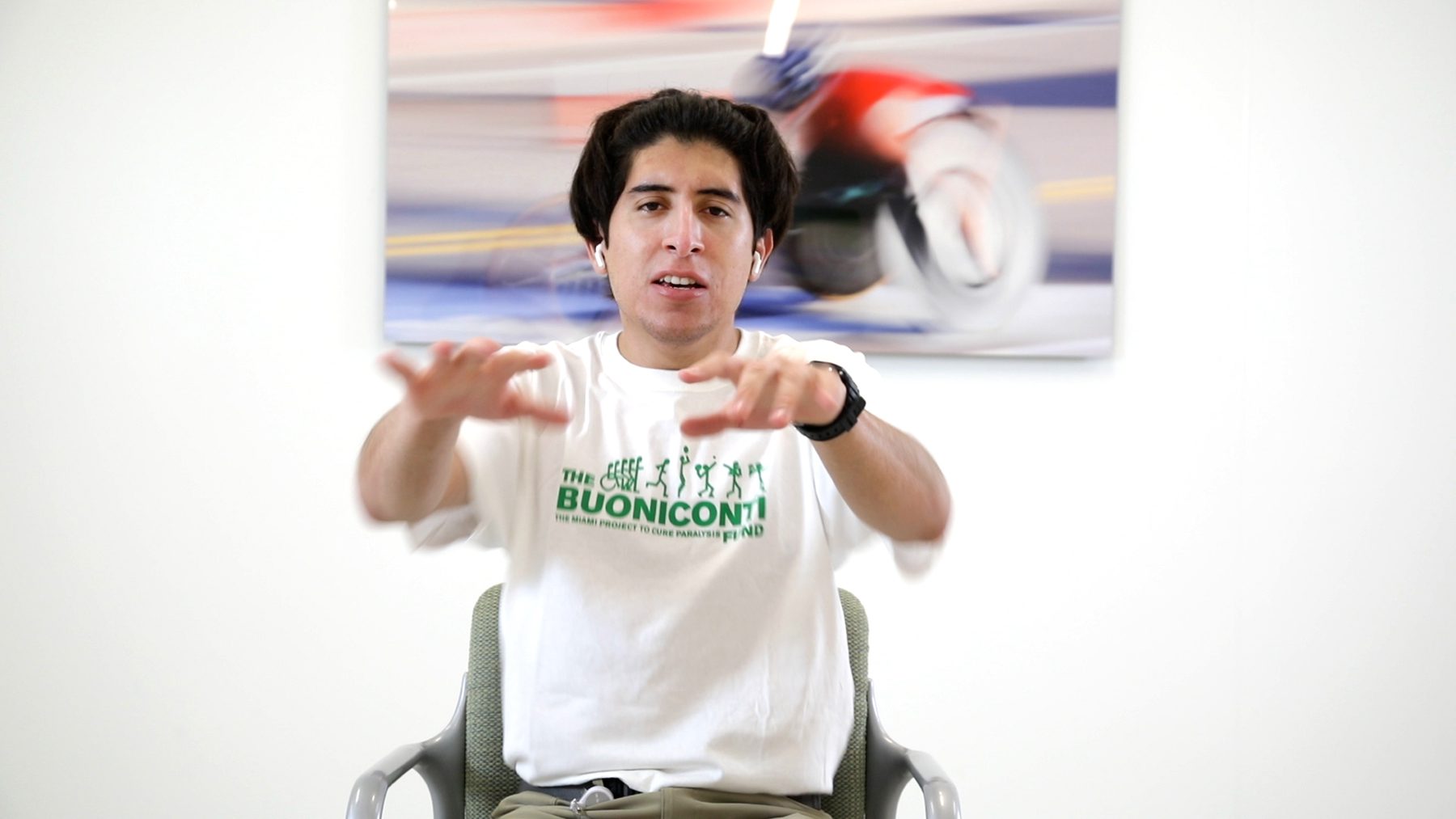The Miami Project research team is proud to share a series of new exercise videos to help our friends living with spinal cord injuries (SCI), and their caregivers, stay active and healthy in their daily lives. These sessions were designed to help those living with paralysis get the most out of their active time from their homes using everyday items, overcoming common barriers to exercise participation such as transportation and equipment. Each session begins with a warmup to get in the exercise state of mind and help prevent injuries, then runs through a series of activities that can be adjusted to each person’s skill level.
These new videos are, in part, an offshoot of a study that has been conducted by Miami Project researchers Mark Nash, Ph.D., FACSM, Associate Scientific Director for Research, The Miami Project, Vice-Chair for Research, Department of Physical Medicine & Rehabilitation Professor, Departments of Neurological Surgery, Physical Medicine & Medicine and Physical Therapy Co-Director, DHHS-NIDILRR South Florida SCI Model System, David McMillan, Ph.D., Director of Education and Outreach, The Miami Project, Research Assistant Professor, Department of Neurological Surgery, and student Michael Correa in conjunction with Dr. Byron Lai at the University of Alabama Birmingham.
The purpose of that study, titled Determining a Theory to Guide the Development of a Virtual Exercise (Tele-Exercise) Program for Persons with Spinal Cord Injury, is to construct a theory informing the preferred features of a virtual exercise program for persons with SCI.
It is well known that exercise provides a benefit to multiple areas of health in people with SCI. However, barriers specific to the paralyzed community have often limited participation in exercise. Most recently, the COVID-19 pandemic further constrained access to community exercise resources such as gyms. With these challenges in mind, the research team wanted to develop strategies to deliver exercise to person’s homes to help overcome the inherent mobility, transportation, and accessibility barriers.
The use of the internet to deliver virtual exercise programs, topic that The Miami Project researchers have recently published on, has proved to be a practical method of facilitating home-based exercise for those living with SCI. This approach allows for an instructor, with a population-specific skillset and knowledge, to guide exercise for multiple participants without the geographic and logistical constraints required for in-person sessions.
Due to the COVID-19 pandemic, Miami Project research team had been delivering virtual exercise follow-along group sessions led by an expert instructor. The team then endeavored to use scientific methods to optimize the approach and guide the development of future virtual exercise programs to best serve persons with SCI.
The qualitative research method being used in the study allows for a theory to be constructed through an iterative process of data collection and analysis. Using the rich experiential data from guided interviews, the team develop a theory that explains the features that persons with SCI prefer in a virtual exercise program. The team used these theories to develop these new videos and intend to use them to guide future virtual exercise programs.
The data collection for the initial study includes a sample of just over 20 participants. Preliminary data analysis is complete, and team is compiling the final analytic details now as they work on writing up a paper to submit for publication. This work was supported in part through funding from the Christopher and Dana Reeve Foundation.

